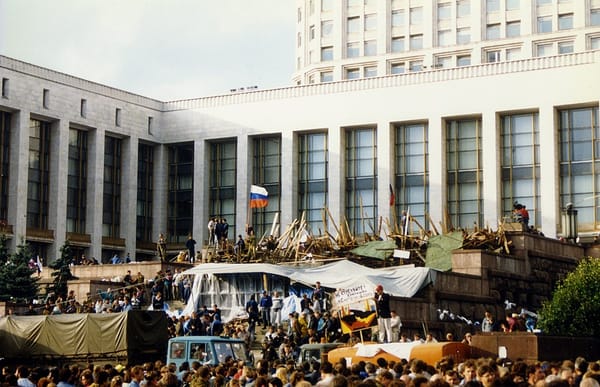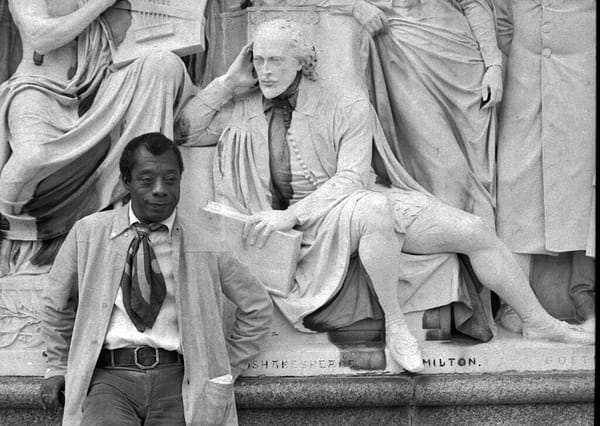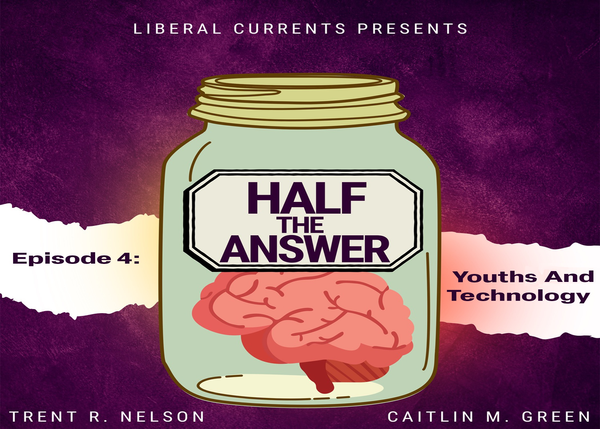The Cosmic Tragedy of Modernity and the Virtues of Liberalism
Safeguarding personal and social autonomy from the ever changing conditions of modernity

A new-old critique of liberalism has, once again, settled on the intellectual horizon, this time under the head label of “postliberalism“. Its pioneer is Patrick Deneen, Professor of Political Philosophy at Notre Dame University. Deneen’s 2018 book, Why Liberalism Failed, argues that liberalism is in decline because it was so successful. After a critical glimpse on globalization, technological progress, social inequalities and the managerial state, he asserts that “as liberalism has become “more fully itself“, as its inner logic has become more evident and its self-contradictions manifest, it has generated pathologies that are at once deformations of its claims yet realizations of liberal ideology“. In other words, through its evolution liberalism developed its own contradictions, which cause it, nowadays, to lose its normative hegemony and unravel before our eyes.
But does not Deneen seriously misunderstand or even misrepresent liberalism, and its impact on society? What Deneen does is that he balloons liberalism, pumps it up, until it becomes identical with all the social ills our contemporary world faces. At the same time, liberal social organisation is fundamentally more virtuous than any of its possible alternatives - including the one Deneen emulates – precisely because it forms the most humane paradigm of addressing an autonomous, if not fully separate, historical development: modernity.
Of course, the fundamental motif of Deneen’s argument is nearly as old as the liberal ethos that he sets out to replace through a sentimental, Christian revivalism. The thought that liberalism crumbles under its own contradictions is a recurring, perhaps the dominant, theme in the critical narration of bourgeois modernity. In this respect, Deneen draws a sword together with certain intellectual predecessors whom he may not be glad to acknowledge as such. After the Holocaust, Frankfurt scholars Theodor W. Adorno and Max Horkheimer hoped to show that the Enlightenment contained the seed of its self-destruction and, ultimately, the metaphysics of totalitarianism. A hundred years before, it was of course Marx and Engels who theorized that capitalism will, eventually, bring about its own end through a dynamic of class polarization. But even Hume, an Enlightenment liberal, wrote much of his political essays from the underlying concern that liberal society may consume what Hume sought to protect: liberal society. Later, many of the Scottish philosopher’s American counterparts would join in this caution, pleading for federalism. At any rate, “postliberalism“ may soon discover that its cupboard of critique shelters the skeletons of some anti-heroes.
True enough, ideological affiliation in itself is no ground for rebuttal. Rather, what these remarks aim to show is that Deneen’s critique of liberalism is entrenched in a broader critical discourse surrounding bourgeois modernity; a critical discourse in which the various historical aspects of modernity are nevertheless not clearly separated at a conceptual level. As in the case of Marx and Adorno-Horkheimer, and in the case of Deneen, one aspect of modernity is selected to bear the burden of sin for all the others. For Marx, of course, material relations carry the day: Enlightenment and liberalism are mere superstructures. For Adorno and Horkheimer, it is Enlightenment that forms the sinful essence of modernity and the totalitarian “disenchantment“ of the world. For Deneen, the critique of social inequality, globalization, unconstrained technological advancement and environmental damage all center around a critique of liberalism.
What do these approaches have in common? It is modernity that is criticized, only the spotlight is on one its constituent elements. Whether for rhetorical gain, or out of a carelessness with regards to the intrinsic complexity of history, or maybe both, such representations seriously distort our interpretation of modernity and our evaluation of its individual, though interrelated, aspects. Modernity is a historical dynamic which has several organic parts, none of which should be viewed as king above its many subjects or be interpreted without reference to the other processes. Its essence is probably better encompassed by a Hegel or a Weber than any of the above-mentioned authors. This holds even if the sum of monistic criticisms certainly reveals the many aspects that run around one another in the historical process of modernity, this increasing distance behind subject and object: the ever-fluctuating value subjectivity of capitalist society (Marx), the renouncement of magic (Adorno-Horkheimer), the emancipation of the radical self (Deneen), and beyond.
Back to Deneen, however, one has to add that it is also tactically appealing for “postliberals“ to encapsulate all their frustrations with modernity in just one concept that ideally for them signals this or that political ideology. This way, they can make their political opponent—liberalism—appear as the one demon behind a historicised alienation of the modern soul and its various social realizations. Ironically, it is through their very self-identification, that Deneen and his fellow “postliberals“ rescue liberalism from its romance with the devil. As evident from the concept, “postliberalism“ seeks to navigate society on the path away from liberalism. This directs our attention to what is true regardless: unlike the other, historical components of modernity, unlike capitalism, the Protestant Reformation, political centralisation, the Scientific Revolution, the Enlightenment or the Industrial Revolution, a liberal way of social organization can be replaced. In other words, whereas it is unrealistic to sustainably discharge from the power configurations unleashed by all the previous elements, it remains a political choice to live under liberal institutions and values, broadly understood, or to abandon them in the favor of something else.
Therein lies the peculiar relationship of a liberal social order with modernity, a relationship that in turn allows for its principled defense. The fundamental question is not whether liberalism is good or bad, for the inhabitants of a removed, abstract, idyllic world. Rather, the question is whether liberalism, or any of its possible rivals, form the better paradigm for responding to modernity. The cosmic tragedy—of Luther, of Newton, of Kant—already happened. Now, as always, we have to decide how to face this. Liberalism is not an organic part of modernity as much as one possible framework of social response to its intrinsic moral vacuum and self-developing informational complexity. This is not to stay that, as a framework of response, liberalism did not contribute to modernity’s substance or accelerate many of its more intrinsic processes, particularly the rise of the state. Rather that some kind of social response was necessary to modernity and its cosmic tragedy, and it is especially in this context of necessity that the virtues of a liberal social organization become apparent.
Of course, such necessities are not acknowledged by Deneen and his creed: they are thrown away in favor of a historicised, yet radically ahistorical, time. The Rousseauian temptation in postliberalism is apparent. Its reactionary psychology does not admit the observation that before bourgeois modernity, the huge majority of people at any rate lacked the mental and material autonomy necessary to reflect on their supposedly flourishing spiritual contexts. Life by any means was “nasty, brutish and short“, and even if a certain amount of people truly found joy and meaning in their culture and communities, as the little Rousseau inside postliberalism suggests, for most it could not be the predominant sensation in life. Once modernity has been unleashed, gains in literacy and wellbeing certainly allowed some, and then quite a many, to long back for a historicised illusion of meaning that people in turn could anxiously project into their modernity-structured political hopes.
But this longing and this projection are ultimately self-defeating. They cannot in fact recover the meaning thought to be once possessed; they only impoverish its symbolic remnants through the use of power. Nietzsche writes: “Attempts to combat nihilism without enacting a change in values only deliver the opposite result, and sharpen the original problem (my translation)”. The remedy becomes poison. Subjected to power, the meaning of God, family and country reformulates into totalitarian nihilism. The anxiety and inner conflict with which modernity is contrasted with meaning translates only to will’s radical claim towards belonging and existential security, ultimately nurturing a totalitarian psyche and a secular religion around the leader, all grounded in the forced march on nihilism in which postliberalism has now partaken.
The other way the totalitarian spirit haunts the reactionary mindset, of course, is the latter’s necessary resort to the state’s power-machinery. To fulfill the mission of discharging from bourgeois modernity—from the historical dynamism of capitalism, reformation, science, Enlightenment and beyond—postliberalism cannot but build an omnipotent state. Either way (or both), reaction renounces itself in flirting with the totalitarian – and inescapably modern – mind.
Totalitarianism’s own way to responding to the cosmic tragedy is not trying to recover meaning; it is to replace it by the immanent (and radical) design of the transcendent. The totalitarian cosmology is rooted in the revolutionary psyche; it is the perpetuation of the Le Bonian moment when Durkheim’s infamous maxim that society is God emerges to absolute immanence, and the crowd’s whims and passions dictate moral and political consciousness. Yet in order to cool down, control and finally direct the crowd’s will, one further step is necessary. One needs to embody that will in the state and the leader; one needs to build a perpetual, deranged magic in which the nation is one and one is the nation. One needs to “reenchant“ the world through the crude essence of state, technology and ideology. One needs to build a Volksgemeinschaft.
The logic of a liberal social organization, needless to say, is radically different from that of reaction or of totalitarianism. Liberalism does not aim to secede from bourgeois modernity, and thereby create its own. It tries to continuously adapt to the evolving problem—and power-configurations—of modernity, so we can protect our personal and social autonomy against its changes, and not be subjugated by the will to power which would deny us this very autonomy. From the logic of adaptation, in turn, it derives that a liberal social organization can only live up to itself if it not only enables, but positively contains both socialist and conservative voices which sufficiently increase the whole paradigm’s responsivity to the corrosive effects of modernity, and to its very own, general need to continuously balance itself along the changes of the latter. Indeed, the emphasis is not on liberalism as an ideology as much as liberalism as a social order, which permits a diversity of viewpoints in the pursuit of autonomy against facing modernisation.
This process necessarily implies a great deal of uncertainty. Liberalism and modernity, though intertwined, are constantly at odds with one another. If not sufficiently conditioned by a liberal social organization on firm footing, modernity might turn on autonomy, freedom, and all the moral basis for human flourishing. The very things that modernity, if coupled with a sufficient degree of liberalism, can deliver. This is the inner tension in liberal society which might lead its logic to appear so self-contradicting, so conflicted. But, as Irving Kristol writes in one of his essays, it is not idyllic harmony but conflict from which freedom springs; in a related manner, it is this logic of self-contradiction that propels liberals, who take themselves any seriously, to assume responsibility for the culture of freedom as much as its politics. Liberal institutions need to be continuously guided, sustained and empowered through a culture of liberalism. In turn, is not only the rights of the individual but also our civic responsibilities towards one another and our institutions that has to occupy the status it deserves in public thinking. Not only is a rhetorical flattery around the core tenets of republicanism permissible. It is positively encouraged.
Liberalism is hard, if done properly. Its response to the cosmic tragedy of modernity is not as simple as a self-deceptive hope in recovery or the malice of design. It is the encouragement of facing cosmic anxiety, and filling it in, through autonomy, public or personal. It requires virtue, empathy, thought and action, independent from the great power structures of the age. It requires autonomous minds working together. By contrast, liberalism for quite some time has been done rather poorly. It pretended it is all about one’s freedom to do as one likes: a legitimate basis for “postliberal“ criticism. But then, liberals need to respond to the current – even their own currents. Therein lies the essence of our freedom.
Featured image is Port of Amsterdam by Abraham Storck




